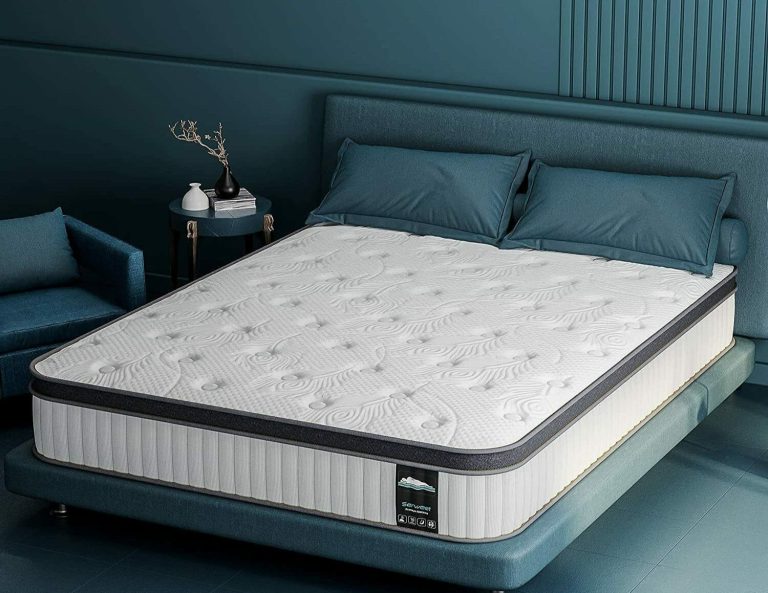Imagine checking into your hotel room after a long day of travel, only to discover mold growth – an unpleasant surprise that not only dampens your spirits but also poses a health risk.
If you’re in a rush, here’s a swift answer: When you encounter mold in a hotel room, you may have legal grounds for a lawsuit, especially if it has resulted in health issues or ruined your personal belongings.
This article provides a comprehensive insight into the legal steps you can take when dealing with mold in a hotel room. We’ll examine your rights as a guest, how to document your claim, possible health implications, and the role of legal professionals in such scenarios.
Your Rights as a Hotel Guest
Legal Obligations of Hotels
As a hotel guest, it’s important to be aware of your rights and the legal obligations that hotels have towards their guests. Hotels are legally required to provide a safe and clean environment for their guests. This includes taking necessary measures to prevent mold growth in hotel rooms, as it can pose serious health risks to guests.
According to the Centers for Disease Control and Prevention (CDC), exposure to mold can cause a variety of health problems such as allergies, asthma, and respiratory issues. If a hotel fails to address mold issues in their rooms, they can be held liable for any resulting health problems. It’s important to note that hotels are also responsible for maintaining the overall safety of their premises, including proper maintenance of electrical systems, plumbing, and fire safety measures.
If you encounter mold in your hotel room, it’s important to document the issue immediately. Take pictures or videos of the mold, and report it to the hotel management as soon as possible. Request a different room or ask for the issue to be resolved promptly. If the hotel fails to take appropriate action, you may have grounds for a legal claim.
Guest Rights and Remedies
If you find yourself dealing with a mold issue in your hotel room, you have several rights and remedies available to you as a guest. The first step is to communicate your concerns to the hotel management and give them an opportunity to address the problem. Most hotels have procedures in place to handle guest complaints and issues, and they should take your concerns seriously.
If the hotel fails to address the mold issue or does so inadequately, you may consider taking legal action. It’s important to consult with a lawyer who specializes in personal injury and premises liability cases to guide you through the legal process. They can help you determine if you have a valid claim and guide you on the best course of action.
Keep in mind that each state may have different laws and regulations regarding hotel liability and guest rights. It’s important to familiarize yourself with the specific laws in your jurisdiction and seek legal advice accordingly. Additionally, it’s advisable to review the terms and conditions of your hotel reservation or any written agreements you have with the hotel, as they may outline the hotel’s liability and your rights as a guest.
Remember, your health and safety should be a top priority when staying in a hotel. Don’t hesitate to assert your rights as a guest and take appropriate action if you encounter mold or any other hazardous conditions in your hotel room.
Documenting Your Claim
Collecting Evidence
When filing a mold lawsuit related to your hotel room, it is crucial to gather as much evidence as possible to support your claim. Start by taking photographs or videos of the mold growth in your room. Capture clear images that clearly show the extent of the mold and any damage caused. Additionally, make sure to document any visible signs of water leaks or moisture issues that may have contributed to the mold growth.
Aside from visual evidence, it is also important to keep records of any conversations or interactions you had with hotel staff regarding the mold issue. Take note of the date, time, and names of the individuals you spoke to, as well as any promises or actions they committed to taking in response to your complaint. This documentation can help strengthen your case and demonstrate that you took the necessary steps to address the problem.
Reporting the Issue
Once you have collected sufficient evidence, it is essential to report the mold issue to the hotel management in a timely manner. Contact the front desk or hotel manager immediately and inform them about the presence of mold in your room. Be sure to provide specific details about the location and extent of the mold, as well as any potential health concerns it may pose.
During your conversation, remain calm and polite but assertive. Clearly communicate your concerns and expectations for resolving the issue. Request that the hotel takes immediate action to address the mold problem, such as relocating you to a different room or arranging for professional remediation.
It is recommended to follow up your verbal communication with a written complaint. Prepare a detailed letter or email outlining the mold problem, including all relevant evidence and documentation. Send this complaint to the hotel management and keep a copy for your records. This written communication serves as further evidence of your efforts to address the issue and can be valuable in your legal case, if necessary.
Remember, documenting your claim and reporting the issue promptly are crucial steps in pursuing a mold lawsuit against a hotel. By collecting evidence and clearly communicating your concerns, you can strengthen your case and increase the likelihood of a favorable outcome.
Health Implications of Mold Exposure
Exposure to mold in hotel rooms can have serious health implications. Mold is a type of fungi that thrives in damp and poorly ventilated environments. When present in hotels, it can negatively affect the health of guests, leading to a range of short-term and long-term health effects.
Short-Term Health Effects
Short-term exposure to mold can result in various health issues. These may include allergic reactions such as sneezing, coughing, and nasal congestion. Some individuals may experience skin rashes or irritation, while others may suffer from eye or throat irritation. In more severe cases, mold exposure can trigger asthma attacks or worsen existing respiratory conditions. If you’re experiencing any of these symptoms during your hotel stay, it’s important to address the issue promptly with hotel management.
Long-Term Health Effects
While short-term health effects are often temporary and can be alleviated by removing the source of mold, long-term exposure to mold can have more serious consequences. Prolonged exposure to mold spores can lead to chronic respiratory issues, including the development or worsening of asthma. Some studies have also suggested a potential link between mold exposure and the development of respiratory infections, sinusitis, and other respiratory disorders. It’s important to seek medical attention if you suspect that mold exposure has had a long-term impact on your health.
It’s worth mentioning that the severity of health effects can vary depending on individual sensitivity and the extent of mold contamination. If you’re concerned about the health implications of mold exposure in a hotel room, it’s recommended to consult a medical professional for appropriate guidance.
Seeking Legal Assistance
If you find yourself in a situation where you believe you have a mold-related claim against a hotel, seeking legal assistance is crucial. A lawyer who specializes in personal injury or premises liability cases can provide you with the expertise and guidance you need to navigate the legal process.
Consulting a Lawyer
When seeking legal assistance for a mold in hotel room lawsuit, it is essential to consult a lawyer who has experience in handling similar cases. They will be able to evaluate the facts of your situation, determine if you have a valid claim, and advise you on the best course of action.
During your initial consultation with a lawyer, be prepared to provide them with any evidence you have regarding the mold issue, such as photographs, medical records, or witness statements. This will help them assess the strength of your case and provide you with an informed opinion on the potential outcomes.
It is important to choose a lawyer who not only has expertise in mold-related cases but also has a good track record of success in handling personal injury or premises liability claims. You can research lawyers in your area who specialize in these areas or seek recommendations from friends, family, or trusted professionals.
Filing a Lawsuit
If your lawyer determines that you have a valid claim, they will guide you through the process of filing a lawsuit against the hotel. This typically involves drafting a complaint outlining the details of your case and filing it with the appropriate court.
Once the lawsuit is filed, the legal process will begin, which may include negotiations with the hotel’s legal team, discovery (where both parties exchange relevant information and evidence), and potentially a trial if a settlement cannot be reached.
It’s important to note that every case is unique, and the length and complexity of the legal process can vary. However, having a knowledgeable lawyer by your side can greatly increase your chances of achieving a favorable outcome.
Remember, the information provided here is meant to serve as a general guide and does not constitute legal advice. Consulting a qualified lawyer is crucial to understanding your rights and options in a mold in hotel room lawsuit.
Conclusion
In conclusion, encountering mold in a hotel room is an unfortunate experience that can, however, be effectively addressed through legal channels. Understanding your rights as a hotel guest, documenting your claim adequately, being aware of potential health impacts, and seeking legal assistance are all pivotal components in ensuring your wellbeing and rights are upheld. This guide has offered an in-depth perspective on how to navigate a ‘mold in hotel room’ lawsuit, aiming to empower you with the knowledge and tools you need to seek justice. It’s essential to remember that you’re entitled to a safe, clean environment in any hotel you visit, and any deviation from this standard may warrant legal action.






